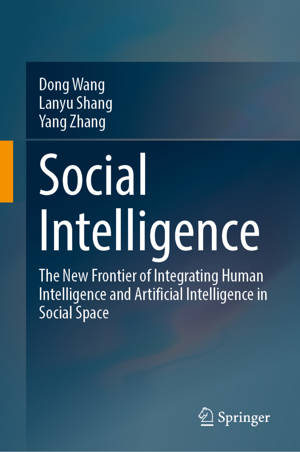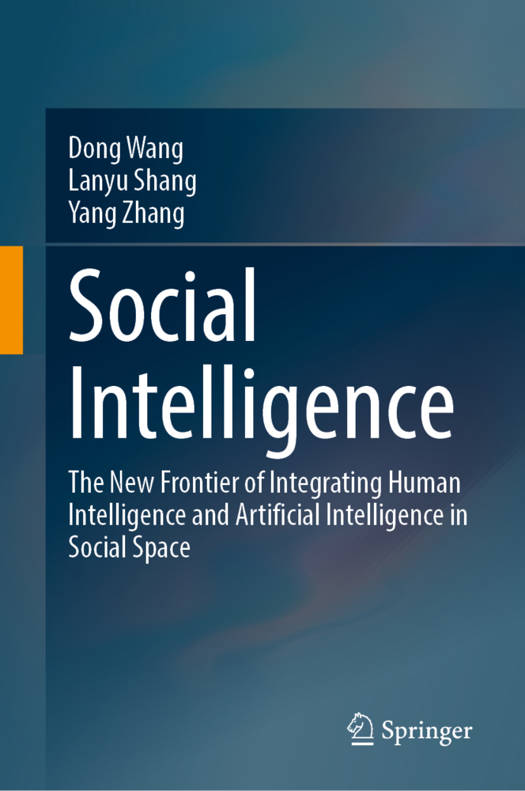
- Afhalen na 1 uur in een winkel met voorraad
- Gratis thuislevering in België vanaf € 30
- Ruim aanbod met 7 miljoen producten
- Afhalen na 1 uur in een winkel met voorraad
- Gratis thuislevering in België vanaf € 30
- Ruim aanbod met 7 miljoen producten
Zoeken
Social Intelligence
The New Frontier of Integrating Human Intelligence and Artificial Intelligence in Social Space
Dong Wang, Lanyu Shang, Yang Zhang
Hardcover | Engels
€ 105,45
+ 210 punten
Omschrijving
Given the rise of AI and the advent of online collaboration opportunities (e.g., social media, crowdsourcing), emerging research has started to investigate the integration of AI and human intelligence, especially in a collaborative social context. This creates unprecedented challenges and opportunities in the field of Social Intelligence (SI), where the goal is to explore the collective intelligence of both humans and machines by understanding their complementary strengths and interactions in the social space. In this book, a set of novel human-centered AI techniques are presented to address the challenges of social intelligence applications, including multimodal approaches, robust and generalizable frameworks, and socially empowered explainable AI designs. The book then presents several human-AI collaborative learning frameworks that jointly integrate the strengths of crowd wisdom and AI to address the limitations inherent in standalone solutions. The book also emphasizes pressing societal issues in the realm of social intelligence, such as fairness, bias, and privacy. Real-world case studies from different applications in social intelligence are presented to demonstrate the effectiveness of the proposed solutions in achieving substantial performance gains in various aspects, such as prediction accuracy, model generalizability and explainability, algorithmic fairness, and system robustness.
Specificaties
Betrokkenen
- Auteur(s):
- Uitgeverij:
Inhoud
- Aantal bladzijden:
- 230
- Taal:
- Engels
Eigenschappen
- Productcode (EAN):
- 9783031900792
- Verschijningsdatum:
- 29/05/2025
- Uitvoering:
- Hardcover
- Formaat:
- Genaaid
- Afmetingen:
- 155 mm x 235 mm

Alleen bij Standaard Boekhandel
+ 210 punten op je klantenkaart van Standaard Boekhandel
Beoordelingen
We publiceren alleen reviews die voldoen aan de voorwaarden voor reviews. Bekijk onze voorwaarden voor reviews.











